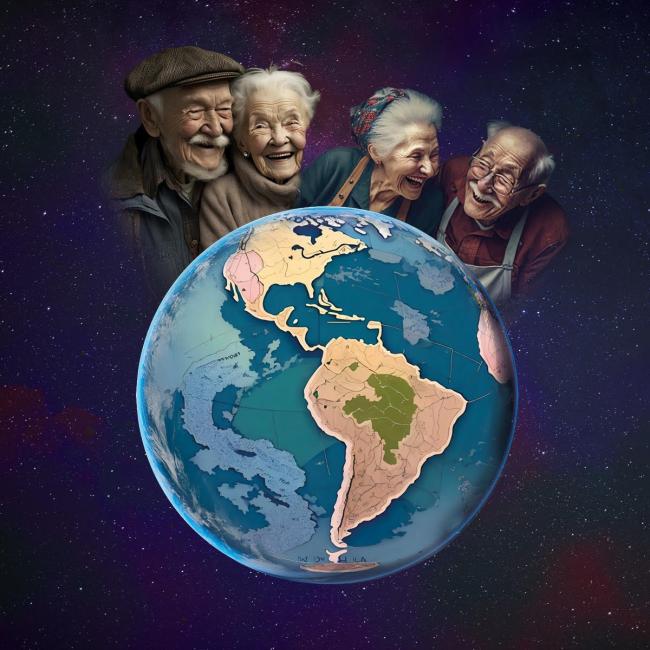Dementia in Latin America: Assessing the Present and Envisioning the Future
Latin American and Caribbean countries (LACs) constitute a region of incredible exquisiteness, heterogeneity and cultural crossbreeding. It is also a region which faces vast tensions for human development. Neurodegenerative diseases in this region are not an exception. LACs possess some of the world’s largest genetic population of multiple dementia subtypes. Unsuitable diagnostic procedures, alongside with limited training, low awareness, lack of basic support, stigmas, language barriers, and low socioeconomic levels trigger huge dementia inequalities.
Motivated by these ever-wider range of dementia topics, Agustin Ibanez coordinated a group of experts who came together to reflect on how well practices in LACs reflect current dementia guidelines. After 2 years of work, he organized, together with Dr Mario Parra, a consensus view of the opinions shared during multiple meetings. In this work, authors identified regional gaps and strategies.
Core gaps include: (1) limited reliable epidemiological data, (2) lack of a regional strategy encouraging governments to set specific mental health policies and budgets, (3) lack of culturally valid assessment procedures, (4) lack of a unified LACs agenda to facilitate collaboration and rapid translation of research findings.
Strategies to tackle these regional needs were also identified. These include: (1) dissemination aimed at increasing outputs in scientific outlets, educational materials, and social media, (2) an integration agenda aimed at increasing opportunities for scientific debate and interactions, professional training, knowledge and resource exchanges, (3) a political agenda targeting relevant stakeholders, policy makers, government agencies, and international organizations to raise awareness of LACs challenges and support harmonization of strategies globally.
More recently, Agustin Ibanez and Mario Parra launched the Latin America and Caribbean Consortium on Dementia (LAC-CD). The LAC-CD will be a regional organization overseeing and promoting clinical and research activities on dementia. It will focus on (1) training the new generation of health practitioners, (2) setting new networks to support multi-centric research and clinical practice, (3) harmonizing clinical procedures for diagnosis and post-diagnostic support, (4) validating such procedures in unique populations, (5) increasing the appeal of regional and international grant proposals emerging from LAC networks rather than from individual groups, (6) accelerating access to knowledge and evidence-based decisions via a unified platform, (7) setting up effective communication channels to reach and persuade heads of governments and private agencies about the need for integration and regional support via national and regional dementia strategies.
To date, the consortium has involved more than 90 regional leaders and members from various LACs and are planning to expand the call. Most of these experts have agreed to link their studies/databases from Argentina, Brazil, Chile, Colombia, Cuba, Ecuador, Mexico, Peru, and Uruguay to the consortium. Dr Ibanez was awarded a seed grant from the Inter-American Development Bank (IDB) to develop a regional platform for dementia. They are also developing a second Latin-American paper (with multiple GBHI faculty and Atlantic Fellows as co-authors) which will present a Knowledge-to-Action Framework for the region. They are preparing several regional grants with the external partners. They also have a world-level international advisory board (US, several EU countries, Australia) that will support the consortium.
Ten years ago, Agustin’s father was diagnosed with Lewy Body Dementia, a devastating condition that was not identified timely in his small town (San Juan, Argentina). His illness had a lasting impact on Agustin and his family. Since this he realized how important it is to combine research, expert clinical assessment, and innovative health policies to face the challenge of dementia across the globe in a timely way. After almost 10 years, he now has the chance of developing one small step towards a larger, hugely needed, Latin American change.
You can read the full paper on this subject, recently published in the journal Neurology here.



